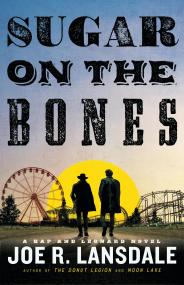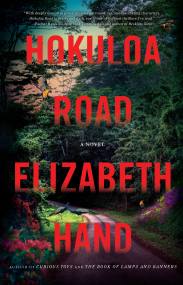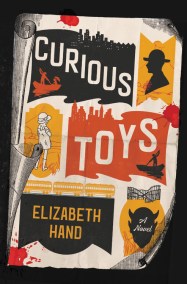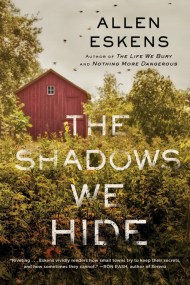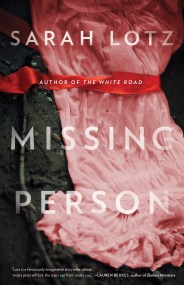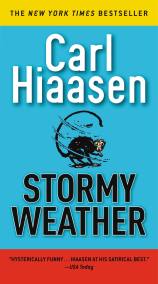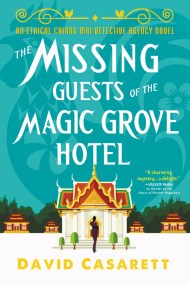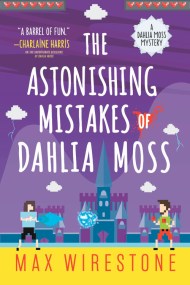This novel contains multitudes! Better Call Saul-style legal escapades, private eye caper, family drama, some dark, possibly otherworldly forces – with the many threads in THE QUIET BOY, how or where did the novel begin for you?
It’s funny because a couple other of my books had very specific, defined starting points: Golden State emerged from the Trump administration and the debate over “alternative facts,” and Underground Airlines from a wave of terrible incidents of police violence in Black communities. The Quiet Boy is a little harder for me to pin down, but I think in general it emerged from my experiences as a dad. I’ve been a parent now for going on fifteen years, and had not until now really written about it, about what it feels like or means. In 2015 or 2016 I happened to read an extraordinary nonfiction book called Far From the Tree, by Andrew Solomon, about parents of exceptional children and challenging circumstances, and it was very moving and really led me to think a lot about how we love our kids. Not just how much we love them, but how we love them—unconditionally, yes, and fiercely and joyfully but also with a kind of fear—from the moment you have a child you are worried, and that worry ebbs and flows but it can never really go away. That’s just an intense aspect of the parenting experience, and I think ultimately it led me into this story, which is a legal story and a crime story and a sci-fi story but at the center of it is really about this poor stricken boy and his family.
The noble and disreputable lawyer, Jay Shenk, is one of the first characters we meet and central to THE QUIET BOY. Can you introduce him?
Ah, Jay! He’s a noble scumbag, a cheerfully amoral low-rent personal injury lawyer who is later forced by circumstance to become an essentially incompetent criminal defense lawyer. The thing about Jay is, you may question his tactics—you should question his tactics, because he basically lies and cheats—but you can’t deny that he’s got a good heart. He wants to win, he wants to earn, but at the same time he is devoted to his clients; he sees being a lawyer as akin to being a knight or champion, and once you sign with Jay you’ve got him 100%. The other thing about Shenk is that he goes through the world just brimming with empathy. He loves his clients; he loves his son, Ruben; he loves the bailiffs and the judge; he even, in a funny sort of way, loves opposing counsel because opposing counsel is part of the game of the law, this big complicated game to which he has devoted his life and all his energy. I confess that I, myself, love Jay Shenk and I wish I could write him forever. More so I wish I could see the world as brightly and as forgivingly as he does, and work as hard.
Oftentimes lawyers, in fiction or in pop culture generally, get kind of a bad rap. Lawyer jokes, this default assumption that they’re, like, bottom feeders, all that kind of stuff. It's a perception that really raises my hackles, maybe just because I know and love so many lawyers and know them to be excellent human beings. I just don't buy the stereotype, and if anything I think the opposite is true: probably more so than most people, lawyers have a sense of fair play and a solid work ethic. So Jay, even though he's not a paragon of virtue, represents maybe a small corrective—he's a good guy, a caring guy, and his love for the law is his way of loving others.
The case at play in the book is about a teenager, Wesley, who never comes to after a blow to the head. He recovers, so to speak, only enough to walk in endless circles, not eating, sleeping, growing, nothing. THE QUIET BOY is an investigation of what has gone wrong but—without spoilers—can you talk about why you chose that injury and dynamic?
I always knew that at the very center of this there would be an absolutely unexplainable phenomenon. It began with something even more abstract and weird, where Wesley would wake up with an entirely different personality, but that felt too cute and too hard to manage, narratively. So I turned him into this kind of cipher, alive and awake but totally uncommunicative, and with a kind of illness that is literally impossible: like, how can this be? But it is. And in the very inexplicability of it is a kind of hope—if the doctors have never seen this before, then they can’t know for sure that it’s not fixable. His poor parents, you know? Because he’s not dead, he’s not gone, he’s right here. He’s just….walking. And then the crux of the narrative becomes answering the basic question, is Wesley the victim of some heretofore unseen neurological illness, or is he the victim of some other-dimensional invasion? The story turns on the axis between these two possibilities.
From the beginning – the opening lines read: “The phone was ringing at Killer Greens, but what business was that of the Rabbi’s? His job was straight chopping.” – THE QUIET BOY includes your Jewish heritage. What was it like to bring that to the page for what feels like the first time in your novels?
Like many American Jews, I grew up fairly secular, and my faith has always been more of a background noise, a part of who I am rather than an active every-day practice. But frankly political events of the last half decade or so have made me more conscious of questions of identity, and of my Jewish identity—like, hey, this is who I am, this is the history I’m connected to.
Now, look, I’m a crime novelist and a science-fiction novelist and I’m never going to sit down and write a memoir of growing up as a Reform Jew in suburban Maryland and going to Jewish summer camp in Pennsylvania (well, never say never, but that sounds pretty boring). But making Jay Shenk not just a lawyer and a dad but a Jewish lawyer and a Jewish dad helped me understand him, because on some deep level I know what those things mean, how Jay might tend to see the world. It got more interesting when it came to Jay’s son Ruben, who is adopted from Vietnam and so doesn’t look Jewish, and who feels alienated from his Judaism—his friend ironically calls him “The Rabbi”—just as he feels alienated from everything.
So the book asks the question of what does it mean to be Jewish, but it’s really asking the question, over and over, in a lot of ways, of what does it mean to be a person, in general. Of what stuff are we formed? Is Ruben still Jewish, when he doesn’t practice and looks Asian and is estranged from his only relative? Is Wesley still Wesley, even as he’s just walking in circles, with all the Wesleyness drained from him?
Also for the first time, THE QUIET BOY is set in contemporary times and in a US that doesn’t seem to break any laws of reality. Was that change fun, any challenges or surprises?
Yes, most of my work takes place in some sort of alternate reality, where it’s sort of like our world but different: in Underground Airlines, it’s now, but slavery is still legal; in The Last Policeman it’s now but a massive asteroid is about to end civilization. In The Quiet Boy there is this massive intrusive weirdness of Wesley’s condition, and it shatters normalcy for those who encounter it, but the basic fabric of reality is the same as ours.
In a way it was a relief to just be writing a book set in regular ol’ lived reality. My focus could be on bringing to life contemporary Los Angeles and the world of the Shenks and the Keeners. So this relieved me of some of the burdens of world-building, although I realize that as a novelist you’re always doing world building, whether you’re creating an alternate universe, a historical period, or a straight up “realistic” book: you are building the world of these characters, their neighborhoods, their culture, how they see things and what they care about and pay attention to.
What’s funny was that I wrote this realistic novel, and then this pandemic came, and suddenly it felt like we were actually in an alternate universe! I actually had to re-configure the novel, move it back a year, because no one was going to believe it was taking place in 2020 as 2020 actually occurred.
What was the research for the book like?
Fairly extensive! I will say that researching is always one of my favorite parts of writing—it’s fascinating to read books and articles and try to get up to speed on something you’re curious about but don’t really understand, and talking to experts is always rewarding. Smart people who love their work and love to explain it are golden. For The Quiet Boy there were two very important pieces: the legal bits and the science bits. I talked to a lot of personal injury lawyers, including ones who do medical malpractice cases like the one in the book. I wanted to do my best to accurately depict trial schedules, and the process of negotiation toward settlement, jury selection, all that good stuff. Meanwhile I was trying to educate myself on the workings of the human brain, including by repeatedly, probably annoyingly, interviewing my cousin, Stephanie Simon-Dack, who is a neuroscientist at Ball State, in Indiana.
Was there anything that surprised you in the writing of the book?
Oh, God, yes. Without spoilers, a lot of shit happened that surprised me with this one. Right down to the solution of the mystery. But I always say, if you’re doing it right, writing a book should surprise you every day. I’m always making very careful plans and detailed outlines and then finding that things happen that I hadn’t planned for. What an incredible feeling that is, by the way, when your characters have taken you somewhere you didn’t anticipate. I hesitate to use the word supernatural, because I think writers should avoid thinking of the work that way, but boy it’s pretty startling.
The paradox is that you have to make the detailed plans and outlines to let those surprises happen! If I don’t have at least a rough idea of what I’m going to write on a particular day, I can’t even start, even though once I start I may possibly—probably! almost certainly!—end up somewhere totally different.
In sum: writing is absolutely maddening, and it’s the greatest thing in the world. It’s both.
You also write and produce for television, including FX’s Legion and now on a limited series for Apple+. How does your experience in TV storytelling effect your books, if it does?
Any writing you do makes you a better writer. Almost everything I’ve learned writing scripts has been applicable to the books, and vice versa.
Although it must be said, TV writing is a very different jam: for one thing, it’s just intensely collaborative—in a writers’ room you are splitting work with other folks, tossing out ideas and taking up other people’s ideas, brainstorming together, all that good stuff, while writing a novel is obviously quite solitary, the artist at his loom. Even when you’re just writing a pilot script, as I’ve done a few times now, you’re beholden to notes from producers and network execs in a way that’s much more intense and immediate than it is with editors at a publishing house. So in a way, I think of TV writing and fiction writing as my two, totally different jobs, and I feel lucky to get to move back and forth between them…but on the other hand, at the end of the day, the work is the same: building an interesting world, investing in a remarkable character, thinking about conflict and story arc and resolution. All writers, in all mediums, are chasing the same sort of magic, trying to brush against the light of something true.
What have you been reading, watching, doing, to try and find joy during this difficult time?
The secret to my sanity right now is that we got a dog, and the dog is young and energetic, and so I take the dog for a run basically every morning, and while we run I listen to audiobooks. I’ve listened to a looooooot of audiobooks in this pandemic year, and also my night table is stacked with books, and that level of engagement with fiction just brings me tremendous pleasure.
I will quickly recommend a few books I’ve loved: Version Control by Dexter Palmer, American Spy by Lauren Wilkinson, and Mirage Factory by Gary Krist. (Oh, that last one is nonfiction. I also read a lot of nonfiction.) I’m also about halfway through a years-long goal of reading all of John Le Carre—I’ve just started The Night Manager, and (spoiler alert) it’s great.

